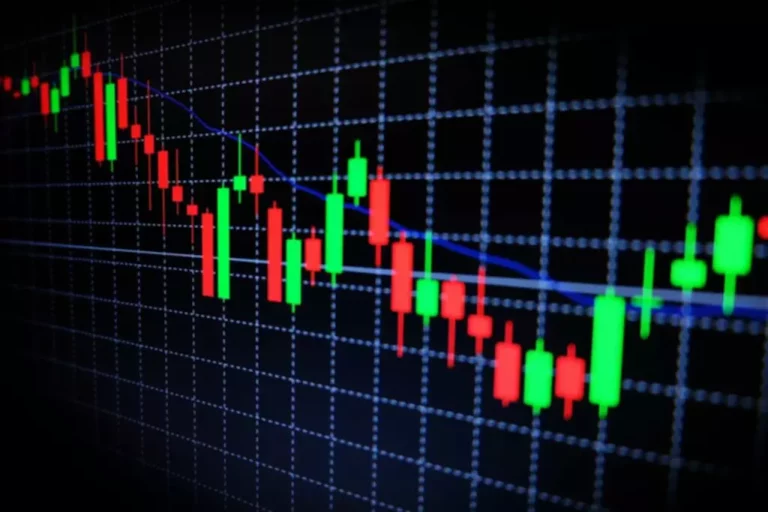Content
These regulations Stockbroker aim to promote fair and orderly markets, protect investors, and ensure market integrity. The regulatory oversight provides market participants with confidence and transparency. Whereas organised exchanges are subject to very rigid rules and rigorous regulatory oversight, OTC markets are subject to far less regulatory scrutiny.
Difference between Over The Counter and Exchange Traded Derivatives
The need for risk management tools drove this evolution in an increasingly complex and interconnected global economy. Future contract is a financial contract where both parties are obligated to trade (buy or sell) the underlying asset at a predetermined price and on a set date. This trade is executed on the exchange, which is regulated, and therefore, no counterparty risk/default risk is there. With a centralised marketplace, buyers what is an etd and sellers can easily enter and exit positions, facilitating smooth and efficient trading.
Compare exchange traded derivatives and over the counter (OTC)
Future contracts require margin and follow mark to the market mechanism (daily settlement). Both parties in a future contract must maintain the Maintenance Margin to continue trading. If the balance in the account falls below the Maintenance Margin, the investor gets a margin call, and he must bring the amount back to the Initial Margin. Sometimes, many investors or traders feel the need to hedge a position, want https://www.xcritical.com/ to access assets which are not available in the market for trading, want to increase leverage or need a customisable contract or product. These derivatives are subject to regulatory supervision, ensuring compliance with laws and regulations.
Navigating Crypto Frontiers: Understanding Market Capitalization as the North Star
Now, if the market price of wool decreases after 6 months, Mike would be happy that he did the right thing and vice versa for Harvey. However, the transparency of exchange-traded derivatives may be a hindrance to large institutions that may not want their trading intentions known to the public or their competitors. Retail investors might take a position in stock options to hedge the value of their stock portfolios.
- Option contract provides the owner (option buyer/holder) the right but not the obligation to conduct a transaction (buy or sell) of an underlying asset at a predetermined future price on or before a predetermined future date.
- Furthermore, all involved parties, such as traders, exchanges, and brokerages, follow standardized rules and undergo regular audits.
- Over-the-Counter derivatives are financial contracts traded directly between two parties, without the involvement of an organised exchange or intermediary.
- Swaps are customised derivative contracts between two parties which involve the exchange of sets of cash flows of two financial instruments over a set future date.
Our writing and editorial staff are a team of experts holding advanced financial designations and have written for most major financial media publications. Our work has been directly cited by organizations including Entrepreneur, Business Insider, Investopedia, Forbes, CNBC, and many others. The articles and research support materials available on this site are educational and are not intended to be investment or tax advice. All such information is provided solely for convenience purposes only and all users thereof should be guided accordingly. The Commodity Futures Trading Commission (CFTC) is another regulatory body that oversees the trading of ETDs in the United States. By doing so, arbitrageurs help to promote price efficiency and reduce market volatility.
Exchange-traded derivatives are financial contracts that are traded on regulated exchanges. These derivatives derive their value from an underlying asset, such as stocks, bonds, commodities, or currencies. The value of these contracts fluctuates based on the price movements of the underlying asset. Indian exchanges, such as NSE and BSE, play a crucial role in facilitating the trade of these derivatives.
Market risk can be managed through the use of various hedging strategies, such as buying or selling offsetting contracts or adjusting exposure to the underlying asset. ETDs are also subject to market risk, which is the risk that the underlying asset will experience price movements that are adverse to the market participant’s position. Speculators are market participants who use ETDs to profit from price movements in the underlying asset. When it comes to navigating the world of finance, understanding the different types of derivative instruments is crucial. In this article, we will delve into the definition of exchange-traded derivatives, explore some examples, and highlight the differences between exchange-traded derivatives and over-the-counter (OTC) derivatives.
Call options give the buyer the right to buy the underlying asset, while put options give the buyer the right to sell it. Investors can use options for hedging against potential losses or for speculative purposes. For instance, a call option on a stock allows an investor to participate in the potential upside while limiting the downside risk. By trading ETDs, market participants can provide information to the market about their expectations for future price movements, which can help to establish a more efficient and accurate market price. ETDs also promote price discovery by providing a mechanism for market participants to express their views on the future price of the underlying asset. Swaps contracts are a type of ETD that involve the exchange of cash flows between two parties, based on the price movements of an underlying asset.
The concept of exchange-traded derivatives traces back to the 19th century when organized futures markets emerged in Chicago, USA. The Chicago Board of Trade (CBOT), founded in 1848, played a pivotal role in developing ETDs. Initially, these markets primarily focused on agricultural commodities, providing farmers and traders a means to manage price risks.
Regulatory bodies monitor trading activities, enforce investor protection measures, and promote market stability. This oversight instils confidence in market participants and safeguards against fraudulent practices, contributing to the overall safety of the financial markets. The CFTC is responsible for regulating the futures and options markets, and for ensuring that market participants are provided with adequate risk management tools and protections. To mitigate counterparty risk, organized exchanges typically require market participants to post collateral, such as cash or securities, which can be used to cover losses in the event of a default.
However, weighing these advantages against the limitations and risks discussed is essential to make informed investment decisions. Derivatives, such as futures contracts and options, are traded on organised exchanges, providing a centralised marketplace where buyers and sellers can easily enter and exit positions. This high level of liquidity ensures that investors can buy or sell contracts anytime, allowing for quick execution of trades and minimising price impact.
The OTC market often requires higher levels of expertise and capital commitment, limiting access for retail investors. OTC derivatives are entirely customisable; counterparties tailor the precise terms of the contracts to fulfil specific requirements. Common types of OTC derivatives include forward contracts, options and interest rate swaps. When dealing in exchange traded products terms are standardized and the clearinghouse guarantees that the other side of any transaction performs to its obligations. That is, it assumes all contingent default risk so both sides do not need to know about each other’s credit quality.
The biggest reason why Investors find Exchange Traded Derivatives (ETDs) more appealing is because it eliminates the possibility of default risk. ETDs use clearinghouses as intermediaries, guaranteeing that contracts are honoured. There are pros and cons to both OTC and exchange-traded derivatives that impact which is most suitable for a particular organization. If you are unsure which one best fits your needs, enlist the help of an advisor to assist in making this determination. The reason derivative products exist is that users often need customized products as the standardization of exchange products can lead to hedging mismatches and gap exposures. ETDs are for investment purposes, but they are typically more suitable for trading and risk management.



